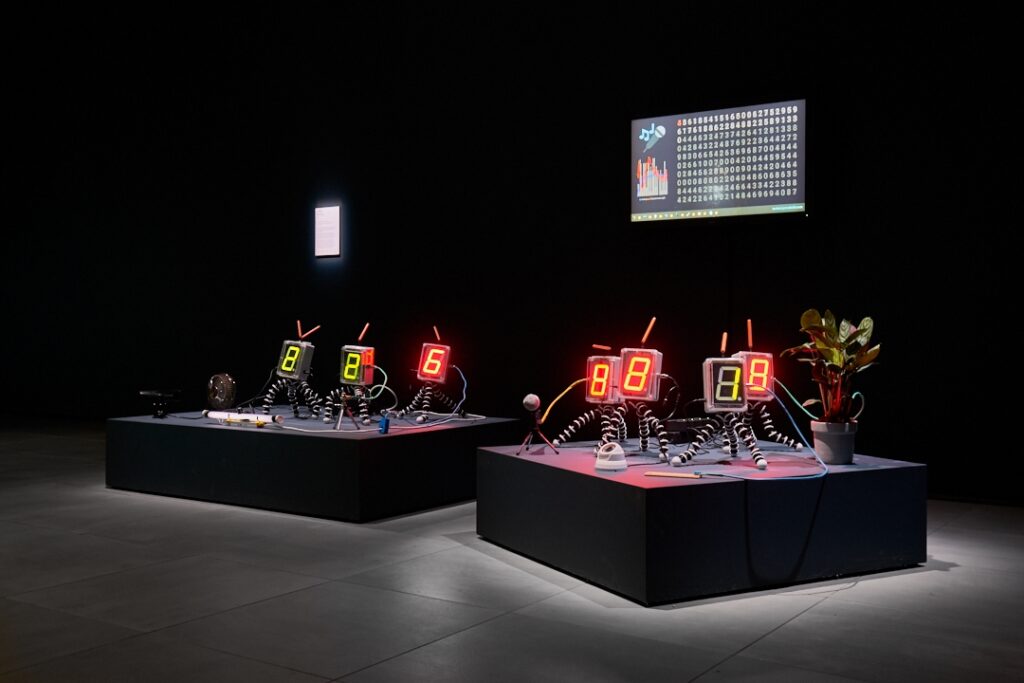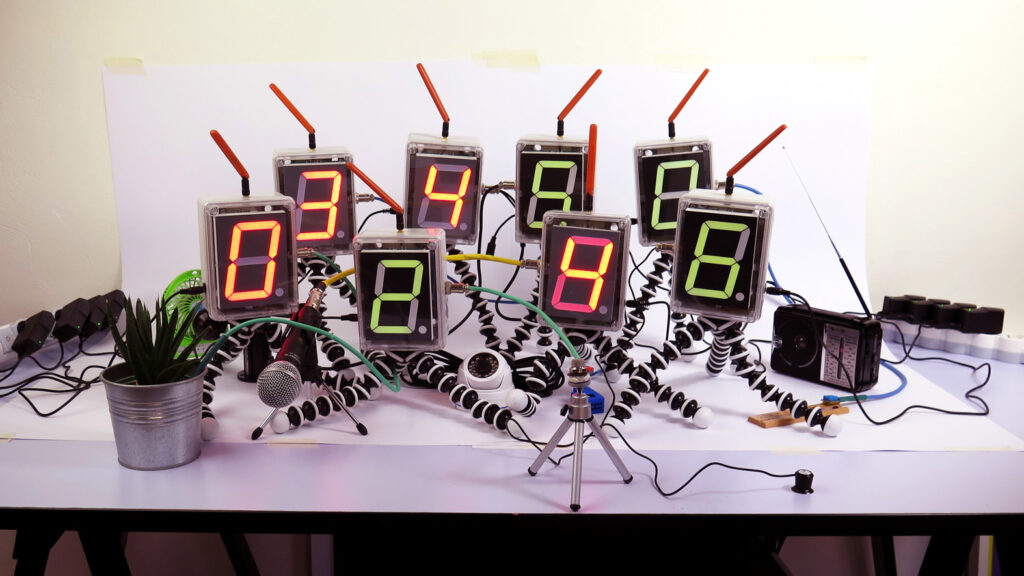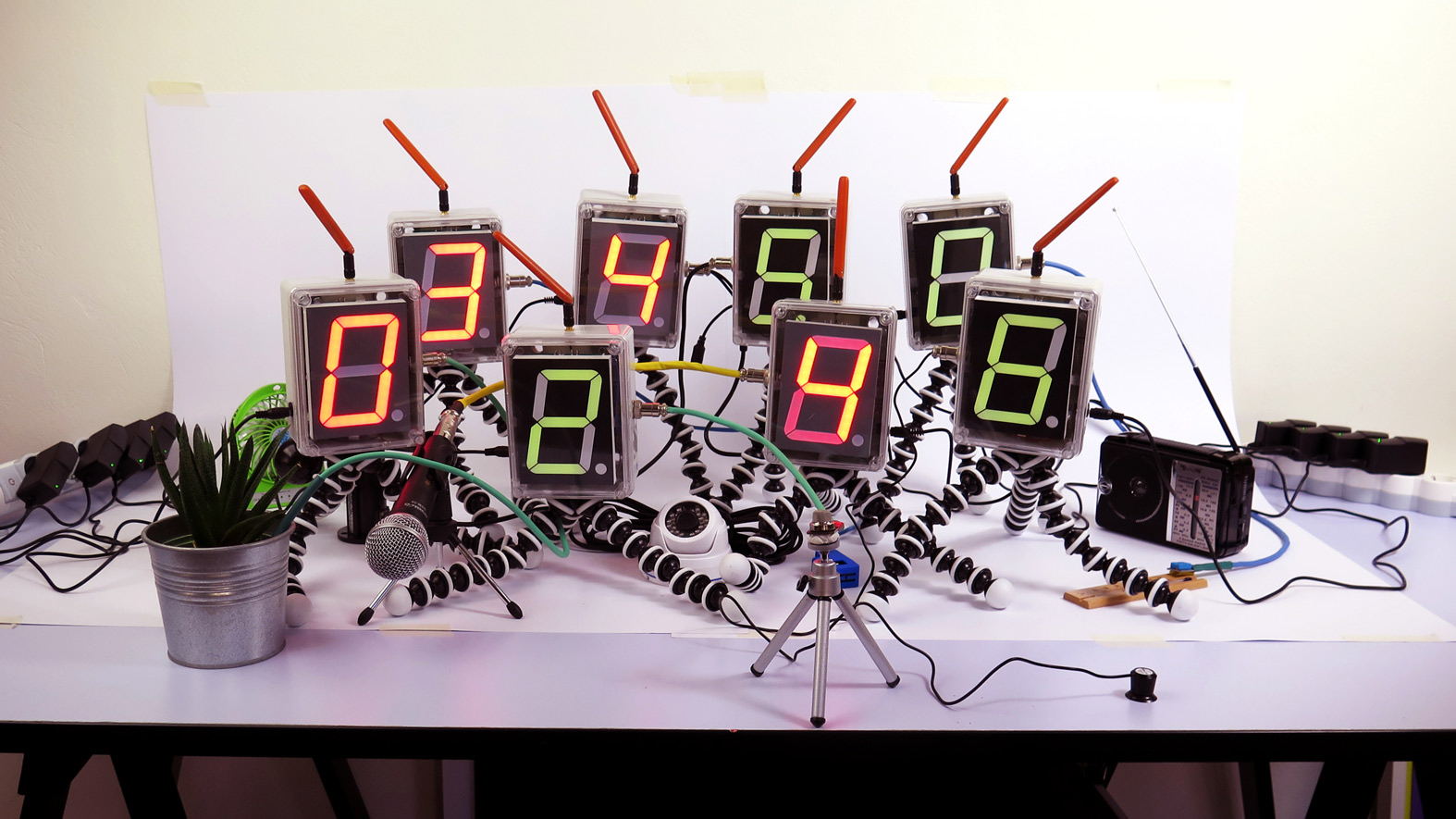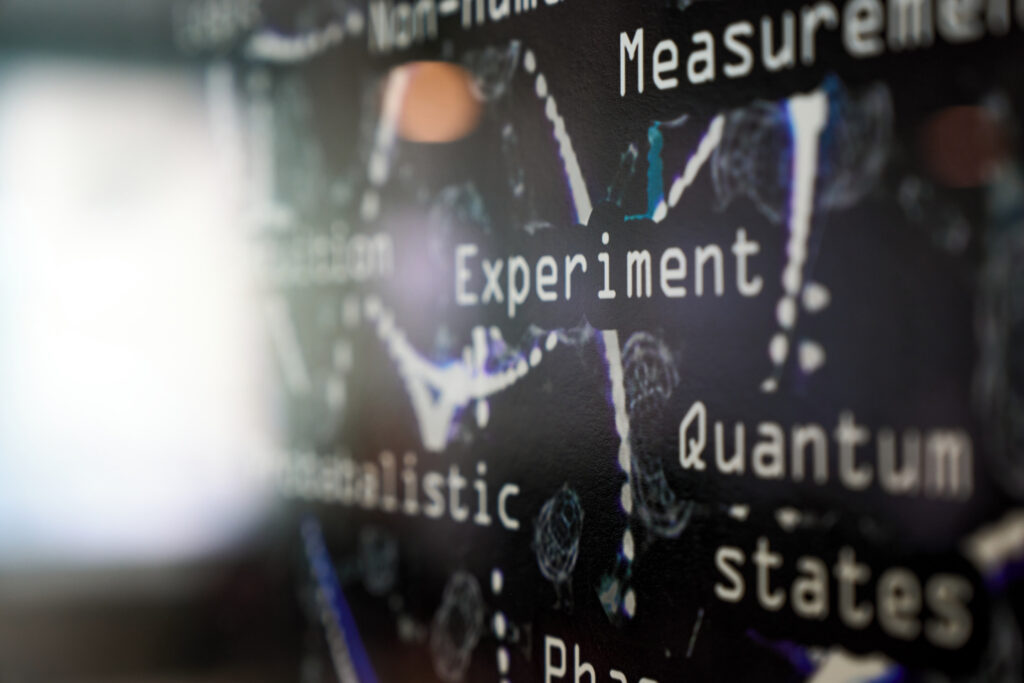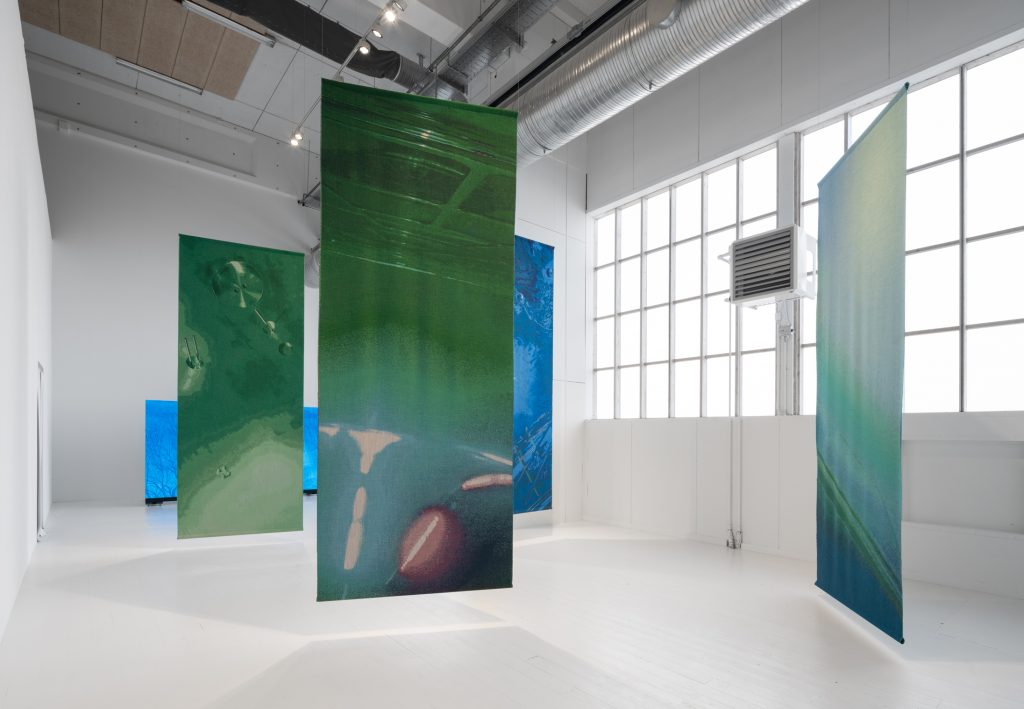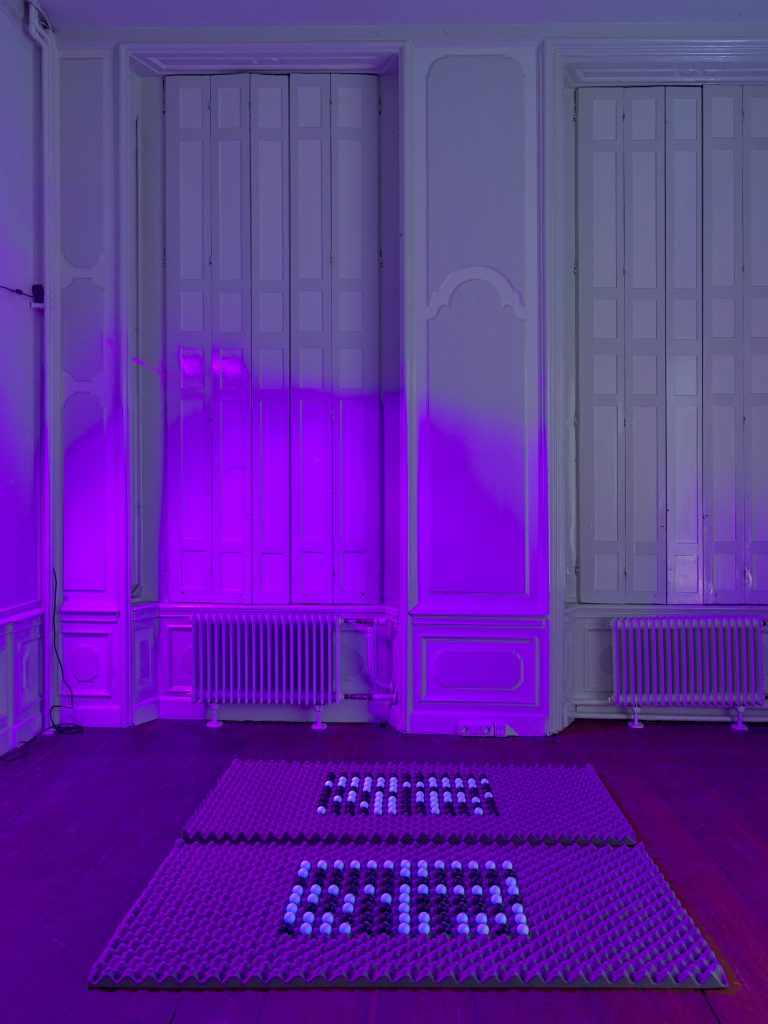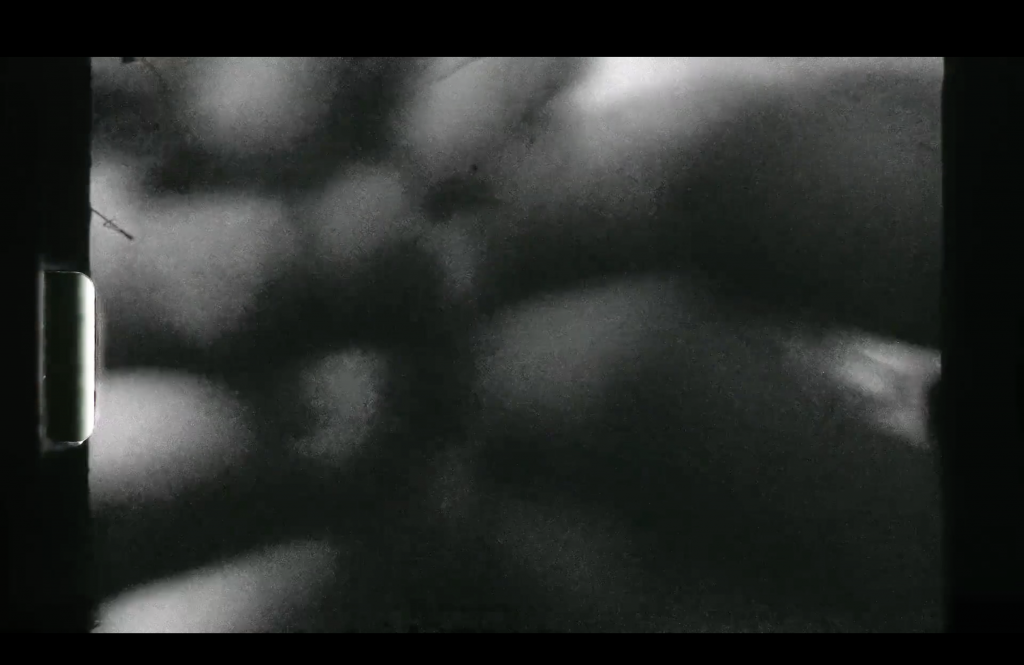- Artist
- James Bridle
- Year
- 2018
- Medium
- Sculptural objects and sensors with embedded SIM cards connected to LED displays (dimensions variable); wired internet and power; live webpage (random.jamesbridle.com)
- Artistic Residency
- Collide
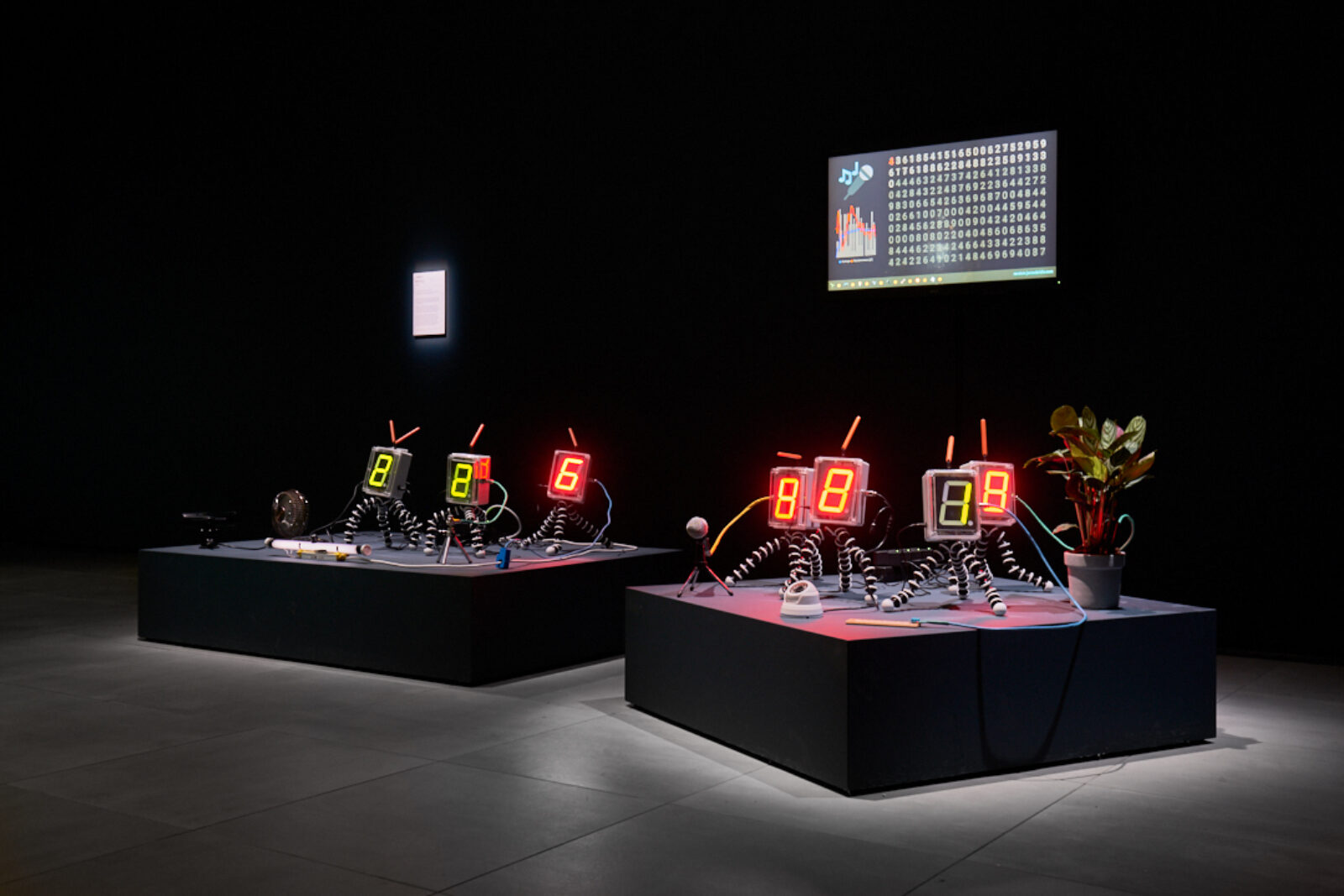
A State of Sin proposes randomness as a strategy to escape from a more predictable and data-driven world
Throughout time, different practices have relied on the generation of random numbers: from ancient democracy and data-driven research; to divination and cryptography. Today, we rely on randomly generated numbers for many critical contemporary applications –including scientific research– and they must be continuously created anew.
However, true random numbers are the one thing which computers cannot calculate: they must be obtained from the world, through all of its natural rhythms and processes. As a result of this, computational practices are always dependent on the messiness of the world: to creative thinking, inspiration, art, and nature. This particularly applies at CERN, where the relationship between physical engineering, data analysis and creative thinking reaches a peak.
A State of Sin proposes randomness as a strategy to escape from a more predictable and data-driven world, in an effort to preserve the diversity, creative thinking, and originality prevalent in human nature. The site-specific installation is based on a series of random number generators. Each captures their environment through sound, light and moisture sensors – which are in turn connected to a variety of familiar artefacts. This creates a functional, sculptural, and humorous assemblage of objects which output truly random numbers produced by natural systems. A real-time dashboard version of the website collates the data captured, making it available for all to use.
